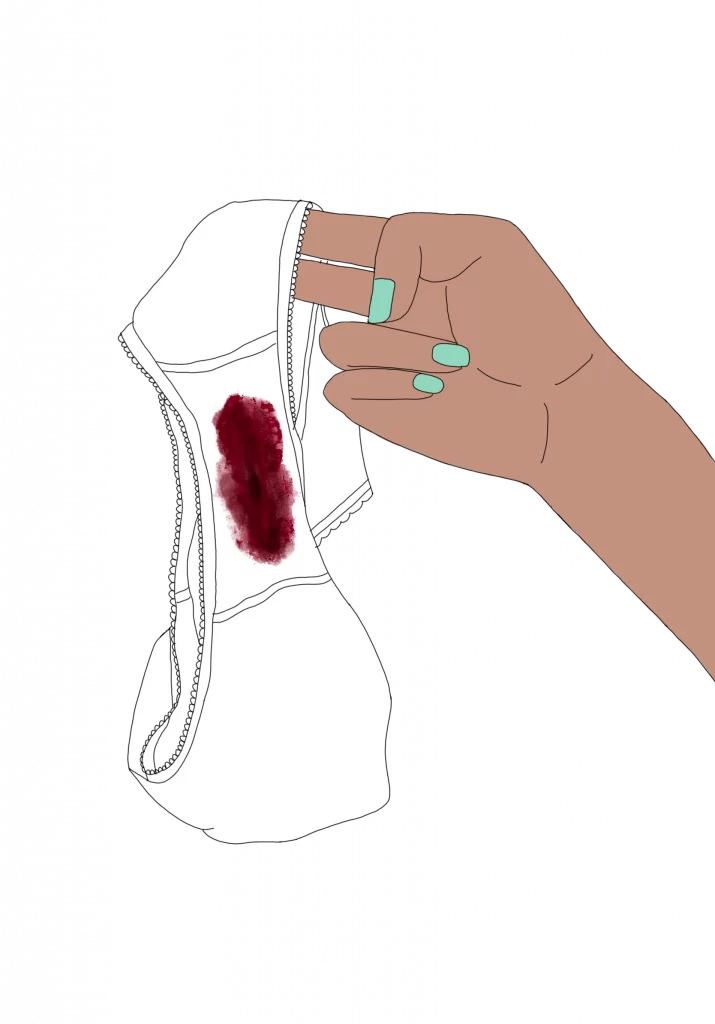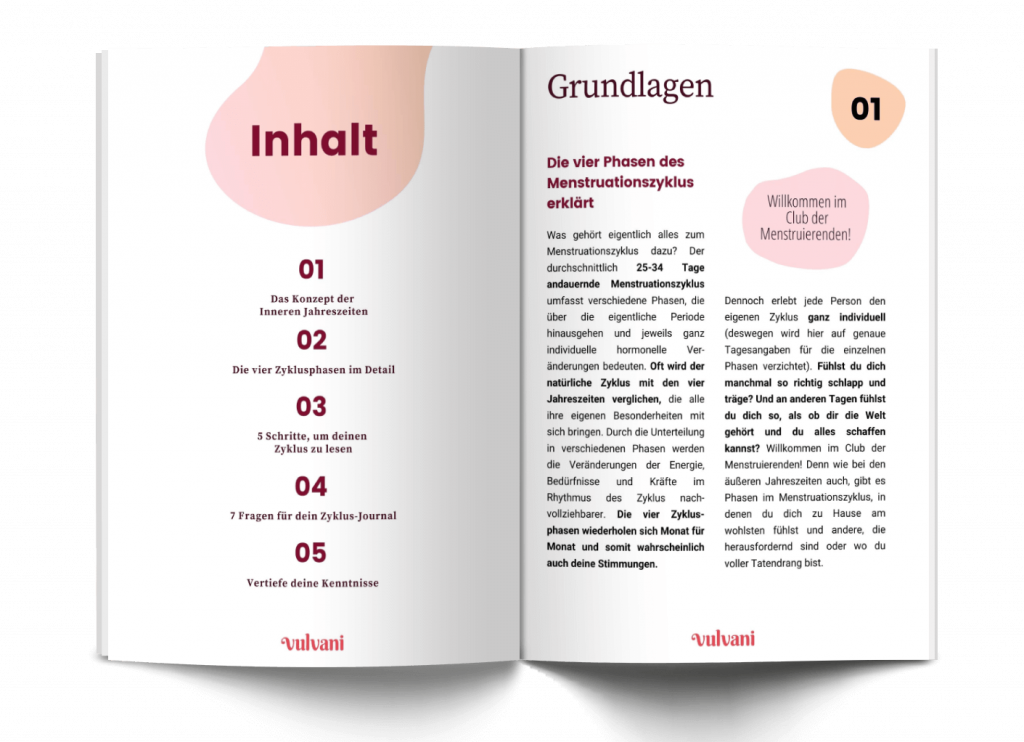
Discovering your menstruation as a spiritual practice
Yasmine understands her menstruation as a spiritual practice and shares in this interview how she is connecting more with her own body through cycle awareness.
The period is still a taboo subject all over the world. But why is there actually a taboo of menstruation? How did it start? And what can we do about it – and for a normalization of the period? Sophia looked into the history of the taboo and found the origins in religions, witch burnings and patriarchal doctors:
The word taboo (in German Tabu) comes from Polynesia and is made up of the words “ta” and “bu”. “Ta” means “to mark” something. “Bu”, on the other hand, stands for intensity. In general, the word taboo means “thoroughly or intensively marked”. Basically, marking has neither positive nor negative connotations.
One could speak in the same way about menstruation. It has always been “thoroughly marked”. But why is it so negatively marked in our society? How did this taboo develop? Historically, our society is permeated by patriarchal structures that taboo the biologically female body processes in a negative sense. The old-world religions such as Judaism and Christianity have also contributed significantly to the tabooing of menstruation:
One would think that blood as a substance is considered “purifying” in many religions. Blood sacrifices cleansed sins and were offered as gifts to the gods. The blood of women, however, was marked with exactly the opposite. To this day, Christianity speaks of the “virgin” Mary and her “immaculate” conception. All female sexuality is considered “defiled” and “impure” in Christianity. This also applies to the biologically female bodily processes such as birth, ovulation, and menstruation. In the Bible, menstruation is seen as a “curse” imposed on all women as punishment for Eve’s sexual seduction.
Thus, it is written in the Old Testament: “When a woman has her flow of blood, she shall be counted unclean for seven days. Whoever touches her shall be unclean until evening. And everything on which she lies while she has her period shall be unclean, and everything on which she sits shall be unclean” (Deuteronomy 15 19-20).
The religious taboo on menstruation goes so far that in Orthodox Judaism women are forbidden to have sex during their period. They are also considered “unclean” during the following six days

At the time of the Enlightenment and the rise of capitalism, the way menstruation was tabooed changed. Even before the industrial age, menstruation was considered toxic, threatening, and impure, but at that time it was still considered a powerful force that was both feared and respected. Menstrual blood was used, among other things, as a love potion, but it was also used to inflict a desired suffering on someone.
In the early days of industrialisation, however, this changed, and the biological female body was reduced to the domestic and its potential reproductive capacity was brought into focus. From this point on, menstruation was seen as a sign of failed fertilisation and was therefore considered negative and useless. Any meaning was written off and it was declared a “mere excretory process”. In our society, excretory processes are associated with “disgust, shame, stench”. Thus the form of tabooing menstruation had changed. Menstruators were taught to be ashamed of their bodies. They should ignore their menstruation because it was useless and something “disgusting” and “unpleasant”.
Until the beginning of the 20th century, menstruation was also the main argument against higher education for women, as it was assumed that intellectual work was harmful for the “female organism” and that the “female brain” would use too much energy and blood during learning, which would be needed for the process of menstruation.
Until the Middle Ages, the profession of healer and midwife was often practised by women. Many women had an enormous knowledge of their bodies, about menstruation, childbirth and “women’s ailments” which was passed on from woman to woman.
The witch trials in the 17th century, which cruelly condemned thousands of innocent women and some men to death in the name of the patriarchal Catholic Church, denounced mainly women with great medical knowledge. That was one of the reasons why women were slowly pushed out of the professional fields. Studious men took their place. Midwives were declared incompetent; the male gynaecologist took their place …
And so much for the clever male doctors: In 1919, the Viennese doctor Béla Schick observed that the flowers his housekeeper had put in a vase during her menstruation would wilt particularly quickly. He therefore thought he had discovered that menstrual blood contained a toxic substance called menotoxin, which could also be transmitted through women’s sweat and blood. It was not until 1958 that new studies were carried out and, of course, no toxic substance was found in menstrual blood. For almost 40 years, however, this was considered “scientifically proven”.
The history of tabooing menstruation is long and cruel. Our society is riddled with the red threads of misogynistic and patriarchal structures in which there seems to be no place for a normal and pleasant way of dealing with menstruation. They can be found in religions, in medicine and in the economic system. All menstruators are affected by these structures that persist and must suffer from the lack of acceptance of their bodies in this society. Therefore, we must stand together against this and fight for an open and enlightened society where there is space for diversity and the body processes that make up our humanity and accompany us throughout our lives.
You want to read more about the taboo topic of menstruation? Then here are some of my book tips:
Illustrations by Maya Eckhardt for Vulvani



Yasmine understands her menstruation as a spiritual practice and shares in this interview how she is connecting more with her own body through cycle awareness.

What options are there for male birth control? Ailsa delivers an overview of what is available now, and what may come in the future.

Sustainable underwear? The founders of TUKEA talk about fair labour conditions, body diversity and body literacy.
…and empower countless women to make empowered choices about their bodies!

